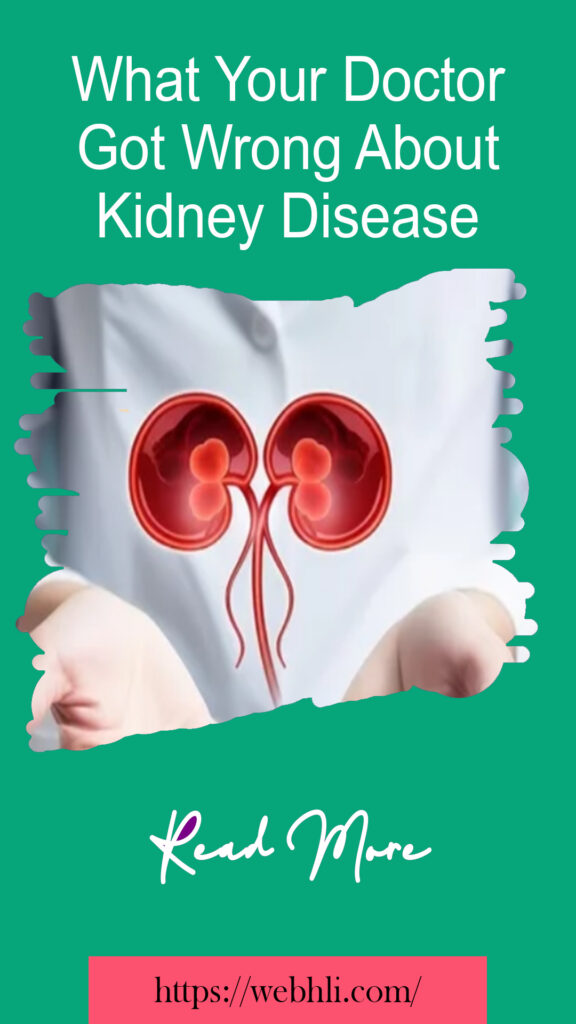
What Your Doctor Got Wrong About Kidney Disease: Common Misconceptions and Overlooked Factors
Kidney disease is a complex condition that requires careful management and understanding. While doctors play a crucial role in diagnosing and treating this illness, there are times when certain aspects may be misunderstood or overlooked. Here are some common misconceptions and important factors that your doctor might have gotten wrong about kidney disease.
Boosting Kidney Health Strategies for Improved Function
Low Potassium Nuts for a Renal Diet
The Impact of Tea on Kidneys A Comprehensive Overview
1. Overreliance on Serum Creatinine Levels
Many doctors rely heavily on serum creatinine levels to assess kidney function. While creatinine is an important indicator, it can be influenced by factors such as muscle mass, age, and hydration status. Solely focusing on serum creatinine may lead to an inaccurate assessment of kidney health.
What You Should Know:
- eGFR (Estimated Glomerular Filtration Rate): This is a more comprehensive measure that takes into account age, sex, race, and serum creatinine levels to provide a better estimate of kidney function.
- Additional Tests: Other tests like urine albumin-to-creatinine ratio (ACR) can help detect early kidney damage that serum creatinine alone might miss.
2. Ignoring Early Symptoms
Kidney disease often progresses silently with few symptoms until it reaches an advanced stage. Some doctors might overlook or dismiss early signs and symptoms, attributing them to other conditions.
What You Should Know:
- Early Signs: Fatigue, changes in urination patterns, swelling in the feet and ankles, and persistent itching can be early indicators of kidney disease.
- Regular Monitoring: If you have risk factors such as diabetes, hypertension, or a family history of kidney disease, regular monitoring of kidney function is crucial.
3. Underestimating the Role of Diet
While medication is essential in managing kidney disease, the importance of diet is sometimes underestimated. A proper diet can significantly impact kidney health and slow disease progression.
What You Should Know:
- Low-Protein Diet: Reducing protein intake can help decrease the workload on the kidneys.
- Manage Potassium and Phosphorus: People with kidney disease often need to monitor their intake of potassium and phosphorus to avoid complications.
- Hydration: Staying hydrated is essential, but fluid intake should be balanced according to individual needs and the stage of kidney disease.
4. Mismanagement of Medications
Certain medications, including over-the-counter drugs, can worsen kidney function. Doctors may not always provide comprehensive guidance on which medications to avoid.
What You Should Know:
- NSAIDs: Nonsteroidal anti-inflammatory drugs like ibuprofen and naproxen can be harmful to the kidneys.
- Supplements: Some dietary supplements, especially those high in potassium or phosphorus, can negatively impact kidney health.
- Medication Review: Regularly review your medications with your healthcare provider to ensure they are safe for your kidneys.
5. Overlooking the Importance of Blood Pressure Control
High blood pressure is both a cause and a consequence of kidney disease. Proper management of blood pressure is crucial, yet it may not always be emphasized enough.
What You Should Know:
- Target Blood Pressure: For most people with kidney disease, a target blood pressure of less than 130/80 mm Hg is recommended.
- Lifestyle Changes: Diet, exercise, and weight management play a significant role in controlling blood pressure.
- Medication Adherence: Taking prescribed antihypertensive medications consistently is essential.
6. Insufficient Emphasis on Diabetes Management
Diabetes is the leading cause of kidney disease. Effective management of blood sugar levels is critical but might not always receive the necessary attention.
What You Should Know:
- Blood Sugar Control: Keeping blood sugar levels within the target range can prevent or delay the progression of kidney disease.
- Regular Monitoring: Frequent monitoring of blood glucose levels and HbA1c can help manage diabetes more effectively.
- Integrated Care: Working with a diabetes care team, including endocrinologists and dietitians, can provide comprehensive management.
7. Neglecting Patient Education
Patients often leave medical appointments without a clear understanding of their condition and how to manage it. Proper education is vital for effective self-management of kidney disease.
What You Should Know:
- Self-Management Skills: Learning how to monitor symptoms, manage diet, and take medications correctly is crucial.
- Support Systems: Utilize support groups, educational resources, and kidney disease organizations to stay informed and motivated.
- Ask Questions: Don’t hesitate to ask your doctor for more information or clarification about your condition and treatment plan.
Conclusion
Kidney disease management requires a multifaceted approach that includes accurate diagnosis, early detection, dietary adjustments, medication management, and patient education. By being aware of these common misconceptions and overlooked factors, you can take a proactive role in managing your kidney health. Always seek a second opinion or consult with a nephrologist if you feel your concerns are not being fully addressed.



 Protected by Patchstack
Protected by Patchstack